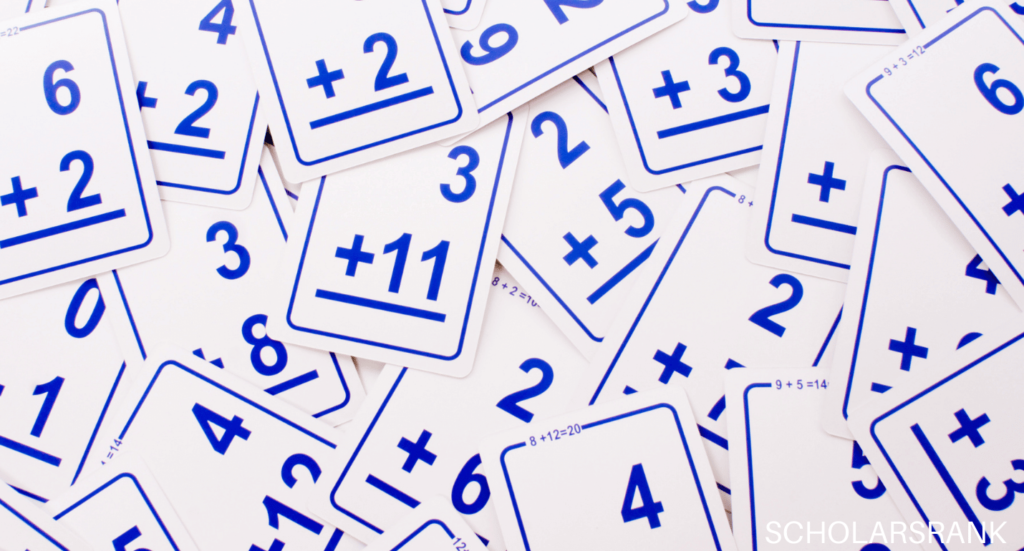Introduction
The most common inquiry from students is “how to improve math skills for college.” While some people find mathematics to be difficult, others think it is as easy as pie.
However, since arithmetic relies on reasoning, it shouldn’t be a difficult subject. You become an expert at solving math problems once you’ve conquered your arithmetic-related phobias.
I’ve made an effort to respond to the topic in this essay and have collated ideas that might aid college students in developing their mathematical abilities. This guidance can help you understand any arithmetic idea you are learning.
Understanding The Subject “Math”
The analytical study of numbers, patterns, and quantities are known as math. Many college students can understand math with the right approach, contrary to popular belief, which holds that only a select few people are born with it.
Math and reading are similar in that you can’t read a phrase or a sentence if you can’t pronounce the alphabetic characters. Every math lesson has a set order because each topic builds on the one before it. Keep working on it until you understand it and can resolve it if you’re having problems understanding something. Skip topics as little as possible to avoid delaying your learning.
Watch instructional videos, take part in math discussions, solve practice problems, or even purchase a collection of books describing various problem-solving strategies. But don’t move on to the next one if the topic is still confusing to you. If you do, you’ll be even more upset.
The Importance Of Comprehending Fundamental Math Concepts
The subject of math is cumulative. To be fully prepared for the upcoming lesson, previous topics must be thoroughly understood.
Math can get frustrating because this is when you’re pressured to move on before you’re ready. Either you fall further behind while trying to catch up, or you’re stuck trying to catch up.
However, if your student has a solid grasp of fundamental math concepts, they can be prepared for success in school. This is a wonderful place to start if you’re not familiar with whole numbers or the concept of sets.
What Are Considered Basic Math Skills?

The fundamental math skills needed to advance to more difficult math learning levels are:
- Addition-To adds to a set is to add.
- Subtraction – subtracting from a set is called subtraction.
- Multiplication – Grouping equal sets together for multiplication (2 sets of 3 is the same as 2×3, or 6).
- Division – When dividing a number, how many equal sets can be found in it? For example, 12 has how many sets of two? six sets of two.
- Percentages – Numbers expressed as a percentage of 100.
- Decimals and fractions — A fraction is an equal portion of a whole. For 10, decimals signify several components of a whole. Both of these are in contrast to full numbers.
- Spatial reasoning – Understanding how shapes and numbers fit together spatially.
How To Improve Math Skills For College
For daily living, potential careers, and work prospects, basic math application skills are important. If mathematics is challenging for you, there is still hope because various studies on the topic have demonstrated that learning it is similar to acquiring any other ability.
Here are some fresh ideas and methods to assist college students to become better at math:
- Practice
Putting new arithmetic concepts into extensive use is one of the most crucial steps toward learning and mastering them. A wonderful strategy to incorporate math practice into a college student’s schedule is to do quick practice sessions a few times per week, followed by a pleasurable math learning activity. Math ideas should be practiced more often if a youngster struggles more in a particular area.
Direct problem-solving might result in confusion and frustration. Make an effort to read your texts and concentrate in class. Try to put into practice problems that your teachers have given you before you finish up the tasks. This allows you to fully assimilate what you are learning.
- Concentrate on Properly Understanding Math Concepts
Many math issues can be solved by memorizing formulae and rules, but this does not imply that you understand the underlying ideas. This makes it more difficult to effectively solve problems and makes it practically impossible to quickly assimilate new information. Math skills can be greatly benefited by taking the time to make sure you understand why you’re doing what you’re doing.
- Analyze Mistakes
If a student makes a mistake, go over the issue with them and try to come up with the solution once more. Walk them through the issue step by step. To see if any improvement has been achieved, recreate similar issues. You must be willing to make mistakes if you want to develop your mathematical abilities. Making mistakes is a normal element of trying to achieve something challenging or unfamiliar. Therefore, when learning math, don’t be scared to make mistakes. Instead, view them as a chance to grow as a mathematician by using them to your advantage.
Remember that no one becomes proficient in math in a single day. You’ll need to study math multiple times a week, which will require a lot of repetition to improve your skills.
The distance effect, which describes how our brains learn more effectively when we stretch our learning over time, can be used to your benefit when you study by spacing out your repetition opportunities.
- Break Difficult Tasks Down
When given a math task, it’s typical to want to get started right away. However, it’s ideal if you try to comprehend the assignment by breaking it down before you begin.
A more challenging assignment can be broken down by summarizing and writing down all the information you learned from it. Next, devise a plan for resolving the issue, follow it, and resolve the mathematical puzzle.
- Seek Assistance
Asking for assistance can be incredibly tough, but there are times when you just have to swallow your pride. Teachers in colleges, schools, and high schools must make sure that all students receive assistance. Since everyone is different, their needs for assistance and support may also vary. As soon as you see that math is becoming more difficult, start talking to your math teacher. Inform the teacher of what you don’t understand, and they will either immediately assist you or direct you to some math activities that will help you with your issue.
Additionally, there are fantastic “math aid resources” available online, and you can look for a dependable math tutor who can help you raise your GPA and do better in class. To provide you with the specialized assistance you require to succeed with this large subject, they will customize the services to your needs.
After receiving assistance with your math homework or assignments, you’ll gradually complete your math problems correctly and have confidence in your solutions.
- Know You Can Get Better
You need to understand that you can improve by altering the way you think if you want to get better in math. Many people who struggle with math believe that “they are awful at math” and always will be, however, everyone can improve their math skills with enough practice, concentration, and willpower. Don’t believe the voices in your head that tell you “I cannot do this.” Use positive statements instead, such as “I can do this if I keep practicing,” since it will make a huge impact.
- Work in a Quiet Environment
Try to find a serene and quiet setting for solving mathematics and problems. By doing so, you can put an end to diversions and concentrate on the duties at hand.
Avoid playing loud music, keep your phone out of sight, and make sure the TV is turned off. Use this rule and get rid of anything that can hinder your learning even if you’re working with an online tutor.
- Work with a Study Companion
Even if your study partner is a parent or sibling, having a study partner can increase your motivation and engagement during the study session. Additionally, a partner can aid in concept retention or offer you resources to review.
- Solve Further Problems
Even with math, practice makes perfect. When you focus on other problems, you might be able to advance if you are having difficulties. Starting with simpler versions of the same types of issues, you can gradually increase the difficulty as you gain confidence in your ability to solve them.
Conclusion
You must have a solid understanding of how each idea functions as well as when to utilize it in conjunction with other concepts and operations if you wish to improve your math skills as a college student. You can utilize tools and resources to aid you in gaining mastery of the various mathematical building components. But ultimately, they can only go so far to assist you.
Get out your pen and paper and work out the challenging problems on your own to ensure that you have a firm grasp of the fundamental ideas. There is no quick fix for math skills, although there are many things you may do to improve them. You must take things slowly, but the more you practice, the more adept you will become.
By implementing the above suggestions to improve your math skills in college, you’ll feel more comfortable using concepts in real-world situations.
Frequently Asked Questions (FAQs)
Can Math Skills Be Improved?
- Even with math, practice makes perfect. By focusing on other problems, you can advance if you are having trouble with a specific kind of difficulty. Starting with simpler versions of the same types of issues, you can gradually increase the difficulty as you gain confidence in your ability to solve them.
How Long Should I Spend Each Day Studying Math?
- At the secondary school level, it’s the one academic subject I’d advise spending at least sometime on basically every day, but quality matters more than quantity. In light of the average weekly time commitment of two to three hours, 15 to 25 minutes may be sufficient. More than that might be advantageous.
You can also read Best Ways On How To Improve Logical Thinking In Math.








